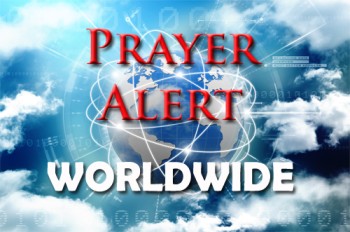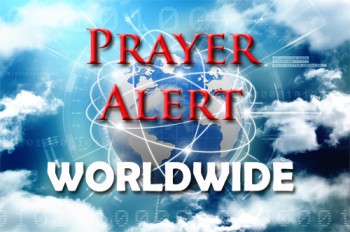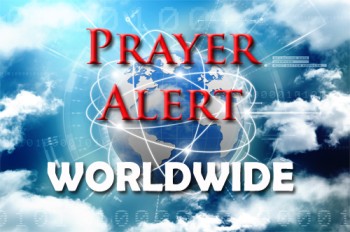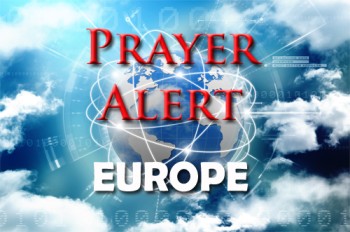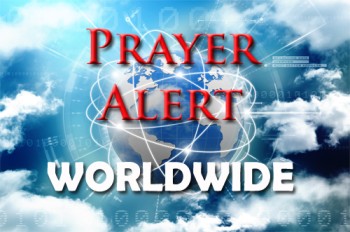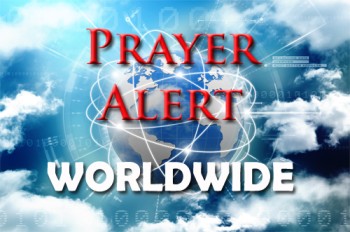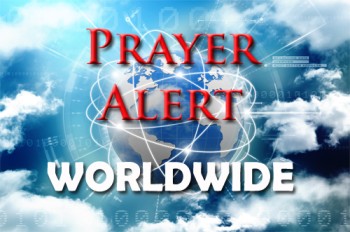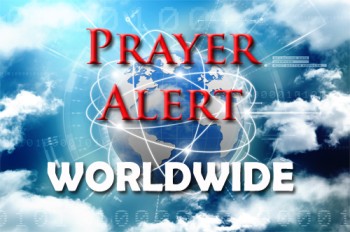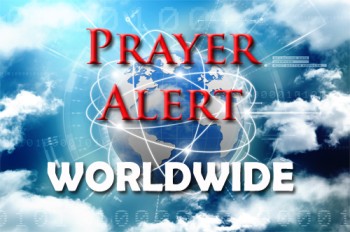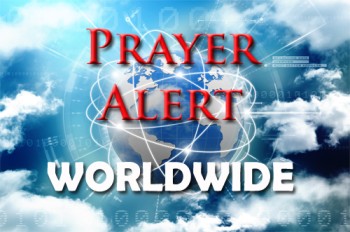Displaying items by tag: Latin America
Argentina: massive protests on austerity measures
Hundreds of thousands have rallied in Buenos Aires and other cities, protesting against president Javier Milei's austerity measures. The demonstrations united students, professors, trade unions, leftist political parties, and even conservative politicians against the budget cuts which threaten the country's universities. Milei, dismissing the crisis as political manoeuvring, faces criticism for slashing spending across various sectors to achieve a zero deficit. The impact of the cuts is evident as universities struggle to maintain basic services amid soaring inflation (currently 290%). The University of Buenos Aires (UBA) exemplifies the crisis, experiencing power cuts because it cannot cover its electricity bill. The outcry underscores the human cost of Milei’s measures and the urgent need to preserve Argentina's education system.
Colombia: millions of displaced people long for peace
Consuelo Manyoma, a resident of San Isidro, waits anxiously for the time when her family can safely return home. Located along a strategic corridor for the cocaine trade, the village frequently experiences gunfire and threats. Two years ago, Manyoma's family and others fled, seeking refuge in Buenaventura. They are now in makeshift accommodation in a huge basketball stadium, enduring uncertainty and longing for peace. The country’s conflict, a bloody war between paramilitary groups, rebel militias, drug traffickers, and the army, has displaced 6.8 million people - one of the world's largest internally displaced populations. In another development, former president Alvaro Uribe is to face criminal charges for alleged links to some of the paramilitary groups: see
Colombia / Panama: failure to protect migrants criticised
Human Rights Watch (HRW) has criticised Colombia and Panama for failing to protect migrants and asylum seekers crossing the perilous Darien Gap jungle route between the two countries. The report highlighted inadequate protection and investigation of abuses, including sexual violence. The Darien Gap, fraught with natural hazards and criminal activity, is a favoured route for those fleeing violence and hardships; over 520,000 people used it in 2023. HRW urged Colombia to investigate a criminal gang's exploitation of migrants and allocate more resources for protection, and criticised Panama’s ‘controlled flow’ strategy, which it said needed to be modified. It also called for the appointment of a senior official to coordinate responses with the UN and humanitarian groups.
France / Brazil: Macron calls proposed deal ‘very bad’
During his visit to Brazil, Emmanuel Macron has called the proposed EU-Mercosur trade deal ‘very bad’. He called for a new agreement prioritising climate, biodiversity, and development. While Brazil is eager to sign, France, concerned about its farmers and environmental standards, has reservations. Brazilian officials remain hopeful, emphasising President Lula's commitment to strengthening ties with the EU. Macron also urged increased Brazilian investment in France and proposed collaboration in African markets. He plans to push for international standards promoting decarbonisation and environmental preservation at upcoming summits. His remarks reflect broader debates about balancing economic interests with environmental responsibilities.
Argentina: 11 convicted of crimes against transgender women
A landmark human rights trial, lasting nearly four years, concluded on 27 March with 11 former officials convicted of crimes against humanity. This was the first case to focus on the 1976-1983 military dictatorship’s practice of committing sexual violence against transgender women. The trial revealed new atrocities, enhancing the nation's understanding of its traumatic past. During those years, thirty thousand dissenters were abducted, tortured, and ‘disappeared’. The prosecutor said, ‘What is different about this trial is that for the first time in Argentina and in the world, crimes against humanity committed against trans women in the context of state terrorism are condemned.’ The military dictatorship promoted traditional Catholic values and viewed LGBTQ Argentines as subversives. Even being openly gay could lead to jail. The verdict marks a pivotal moment for accountability and remembrance in Argentina's turbulent history.
Argentina: soup kitchens hit by Milei’s austerity measures
In Merlo, long lines form outside communal soup kitchens as inflation soars, causing a hunger crisis among the country's poor. President Javier Milei's austerity measures, which have cut government spending, even funds for soup kitchens, have exacerbated the situation. It is estimated that soup kitchens and other similar groups now serve ten million people, out of Argentina's population of 46 million. However, advocates believe the actual number of food-insecure individuals could be higher due to informal hunger relief efforts in marginalised areas. Outrage is mounting, particularly after one minister promised to help the needy and then refused to meet the crowds outside her office the next day; instead she diverted funds to religious organisations. One social leader has criticised the government for failing to address hunger effectively, despite claiming to prioritise direct assistance.
Chile: hundreds missing as wildfires rage
Wildfires have been ravaging Chile's Valparaíso region, leaving hundreds missing and over 120 dead. President Gabriel Boric has described them as the worst disaster since the 2010 earthquake. The fires erupted during a heatwave, engulfing seaside towns normally cooled by sea breezes. Strong winds fuelled the blaze, quickly engulfing hillside communities. Drone footage reveals widespread destruction, with many unable to escape. Authorities are prioritising rescue efforts, with volunteers assisting those displaced. Nearly 15,000 homes have been damaged, and entire neighbourhoods razed. Boric has declared a state of emergency and imposed a curfew. Investigations are under way to determine if the fires were intentional.
Ecuador: prosecutor investigating TV station attack shot dead
Cesar Suarez, the prosecutor investigating the recent attack on a local TV station, was shot dead on 18 January. The attack occurred on 10 January: a group of individuals stormed the building, setting fires and causing extensive damage. Suarez, who was actively investigating this attack, was killed in what appears to be a targeted assassination. The TV station attack has raised concerns about press freedom and safety in Ecuador, as it comes amidst a backdrop of political tensions and unrest in the country. The prosecutor's murder further underscores these concerns and raises questions about the safety of those investigating such incidents. The authorities in Ecuador have condemned the attack on the TV station and the killing of the prosecutor, and have promised to bring those responsible to justice. However, the incident highlights the challenges and risks faced by those working to uphold the rule of law and protect press freedom in the country.
Argentina: court suspends president’s labour rule changes
Javier Milei, Argentina's new president, encountered a setback on 3 January when a court suspended labour rule changes he introduced in December. The decision came in response to a legal challenge from the largest labour union, which argued that the changes infringed workers' rights. Milei's decree included extending job probation from three to eight months, reducing severance compensation, and allowing the possibility of dismissal for workers participating in blockades. The court ruled that the administration had overstepped its authority in implementing these changes by emergency decree, bypassing the legislature. Since taking office in December, Milei has devalued the country’s currency by 50%, cut transport and energy subsidies, and promised to downsize the state workforce - all measures aimed at addressing poverty and high inflation.
Argentina: 13 dead after intense storm
An intense storm in Argentina left at least 13 people dead and others injured in the southwestern port city of Bahía Blanca. Winds reached up to 140 kilometres (87 miles) per hour in the city on 16 December, and by the next day at least 300 people had been evacuated. The city council said that the situation caused by the storm was a catastrophe, reporting multiple injuries, some extremely serious. The mayor declared three days of mourning, saying: ‘I want to reaffirm our solidarity with the families and loved ones of the 13 deceased people.’ He reminded citizens of the importance of keeping safe by staying home, adding: ‘We are still in an emergency situation, with electrical risk and risk of falling trees and structures.’ The city’s emergency teams received over 100,000 calls about downed trees, power lines and signs, among other damage. President Javier Milei said that his cabinet is working with provincial and municipal authorities to help the victims and respond to the damage.
